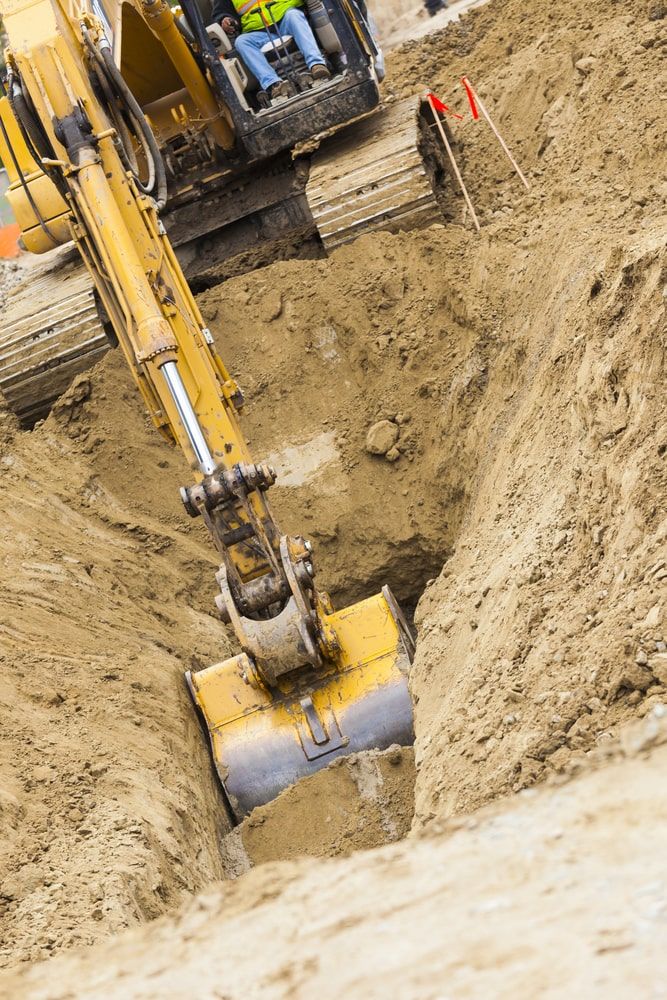Dump Truck Companies in Ohio - Reliable Dump Truck Services Across Ohio
Dump Truck Companies in Ohio - Reliable Dump Truck Services Across Ohio
Blog Article
Comprehensive Excavation Strategies: Grasping the Fundamentals for Success
The mindful preparation, exact implementation, and meticulous attention to detail required in excavation projects require a thorough strategy that incorporates numerous basic facets. The real mastery lies not simply in comprehending these principles however in effortlessly integrating them to navigate the intricacies of excavation jobs with finesse.
Understanding Excavation Task Preparation

Effective excavation jobs are improved the foundation of careful and comprehensive preparation. The initial phase of any kind of excavation job is the preparation phase, where vital decisions are made that can substantially affect the outcome of the task. During this phase, it is necessary to collect all appropriate information regarding the website, including topographical studies, dirt structure, and any prospective hazards that may exist. Recognizing the project range, timeline, and budget restraints is crucial for producing a thorough excavation plan that guarantees the job's success.
One trick facet of excavation job preparation is the advancement of an in-depth timeline that lays out the sequence of tasks, turning points, and deadlines. This timeline works as a roadmap for the project group, enabling them to track development and make needed changes to make sure the task remains on schedule. In addition, a well-defined budget that accounts for all expenditures, including equipment rental, labor costs, and products, is necessary for staying clear of price overruns and hold-ups. By thoroughly thinking about all these variables throughout the preparation phase, excavation jobs can be performed successfully and efficiently, leading to effective outcomes.
Soil Analysis and Website Assessment
Carrying out comprehensive soil analysis and site examination is a vital action in the preparation stage of any type of excavation job. Dirt evaluation involves figuring out the composition, structure, and residential properties of the soil at the excavation website. This info is essential for understanding the soil's bearing ability, moisture content, and potential for erosion, which are key factors in determining the excavation methods and devices needed for the job.
Website assessment surpasses soil evaluation and incorporates a more comprehensive assessment of the overall website problems. This examination consists of identifying any possible hazards, such as below ground energies, ecological concerns, or unpredictable surface, that could affect the excavation process. By thoroughly assessing the site, project managers can create efficient excavation approaches that prioritize safety and security, effectiveness, and environmental management.
Making use of sophisticated innovations like ground-penetrating radar, soil sampling, and drone surveys can enhance the accuracy and effectiveness of dirt analysis and website examination. Investing time and resources in these initial actions can eventually conserve time and prevent expensive delays or issues throughout the excavation procedure.
Equipment Choice and Usage
Efficient excavation jobs rely heavily on strategic tools option and use to make certain optimal efficiency and productivity. Choosing the ideal devices for the work is critical in making best use of efficiency and reducing downtime. Variables such as the kind of soil, depth of excavation, and task range play a he has a good point significant duty in figuring out the most suitable tools for the task at hand.

In enhancement to selecting the appropriate tools, proper application is crucial to job success. Operators needs to be educated to handle the devices safely and efficiently - lancaster trenching. Routine maintenance checks and prompt repairs aid stop malfunctions and make sure constant performance throughout the project
Precaution and Laws Compliance
In the realm of excavation tasks, focusing on safety measures and compliance with guidelines is critical to guaranteeing a lawfully audio and safe operational setting. Safety measures incorporate a series of techniques, consisting of carrying out extensive site analyses, carrying out proper signs and barriers, and giving appropriate safety training for all employees involved in the excavation process. Adherence to laws, such as OSHA demands in the United States, makes sure that the excavation project fulfills the required criteria to shield employees, onlookers, and the surrounding atmosphere.

Monitoring Progression and Adjusting Methods
Just how can forecast supervisors effectively track the improvement of excavation projects and adapt their approaches accordingly to maximize outcomes? original site Tracking progression is vital for ensuring that excavation jobs remain on track and meet due dates.

Final Thought
Finally, grasping the fundamentals of comprehensive excavation approaches is necessary for the success of any type of project. By recognizing job planning, analyzing dirt and site problems, selecting ideal equipment, adhering to safety guidelines, and keeping track of development, task managers can make certain a efficient and smooth excavation procedure. Implementing these methods will certainly bring about effective outcomes and lessen possible risks or setbacks throughout the excavation task.
The initial phase of any kind of excavation project is the preparation phase, where vital choices are made that can considerably influence the end result of the task. Comprehending the project timeline, scope, and spending plan restraints is vital for developing an extensive excavation plan that makes certain the task's success.
How can forecast managers successfully track the innovation of excavation projects and adapt their techniques appropriately to enhance end results? By very closely monitoring progress and being prepared to adapt methods, job supervisors can boost the total success of excavation tasks.
By comprehending project preparation, analyzing soil and site problems, selecting view website appropriate equipment, conforming with safety and security laws, and monitoring progress, project supervisors can make certain a reliable and smooth excavation procedure.
Report this page